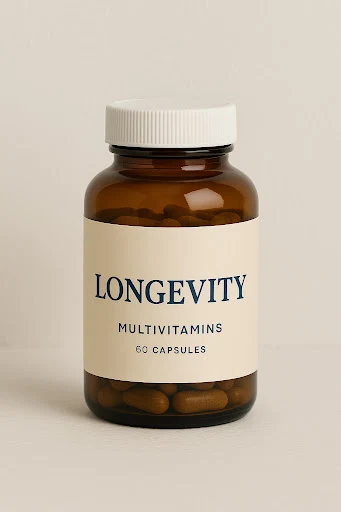A major randomised, double-blind, placebo-controlled trial, recently published, has demonstrated that daily multivitamin supplementation may decelerate biological ageing, as assessed by epigenetic markers. Conducted by researchers at Columbia University and Brigham and Women’s Hospital, the study followed over 2,200 participants aged sixty and above for a period of two years, evaluating the long-term effects of daily micronutrient intake.
Epigenetic age — distinct from chronological age — was estimated via DNA methylation, a biomarker increasingly recognised for its accuracy in gauging biological ageing. The results revealed a marked slowing of this process among those receiving the multivitamin: on average, participants exhibited approximately two years less biological ageing when compared with their counterparts in the placebo group.
These findings lend weight to the hypothesis that subtle yet chronic micronutrient deficiencies may hasten the ageing process, even in the absence of overt deficiency diseases. Repletion through multivitamin use appears to mitigate this acceleration, particularly among individuals with marginal dietary intake. Encouragingly, no significant adverse effects were observed, suggesting the safety of prolonged supplementation.
The authors duly caution that replication in further trials is necessary. Multivitamins — like all supplements — are no substitute for a varied, balanced diet and a healthy lifestyle. Even so, the evidence is compelling, and may prompt clinical guideline committees to consider the role of randomised trials and mechanistic insights when deliberating whether to endorse multivitamin use as an adjunct to conventional preventative strategies in age-related disease.
What relevance might this have to acupuncture? Strikingly, the findings echo core tenets of Traditional Chinese Medicine, wherein premature ageing is understood as the consequence of Jing depletion — the vital essence stored in the Kidneys. Acupuncture, by stimulating specific points to nourish the Kidneys, strengthen the Spleen, and regulate the Liver, plays a direct role in preserving this essence, thereby fostering healthier, more gradual ageing.
Furthermore, acupuncture is known to modulate neuroendocrine function, improve sleep quality, attenuate oxidative stress, and promote metabolic equilibrium — mechanisms that align closely with the epigenetic shifts observed in the study. In this light, multivitamins and acupuncture may be regarded not as alternatives, but as complementary approaches: the former offering cellular nourishment, the latter mobilising the body’s innate capacity to sustain vitality over time.
Reference:
Miller, R.A., Huang, K., Song, S. et al. Daily multivitamin use slows epigenetic aging: evidence from a randomised controlled trial. Medscape. Published 27 March 2025. Available at: https://www.medscape.com/viewarticle/multivitamins-slow-biological-aging-large-trial-2025a10006u7


Comments
Post a Comment